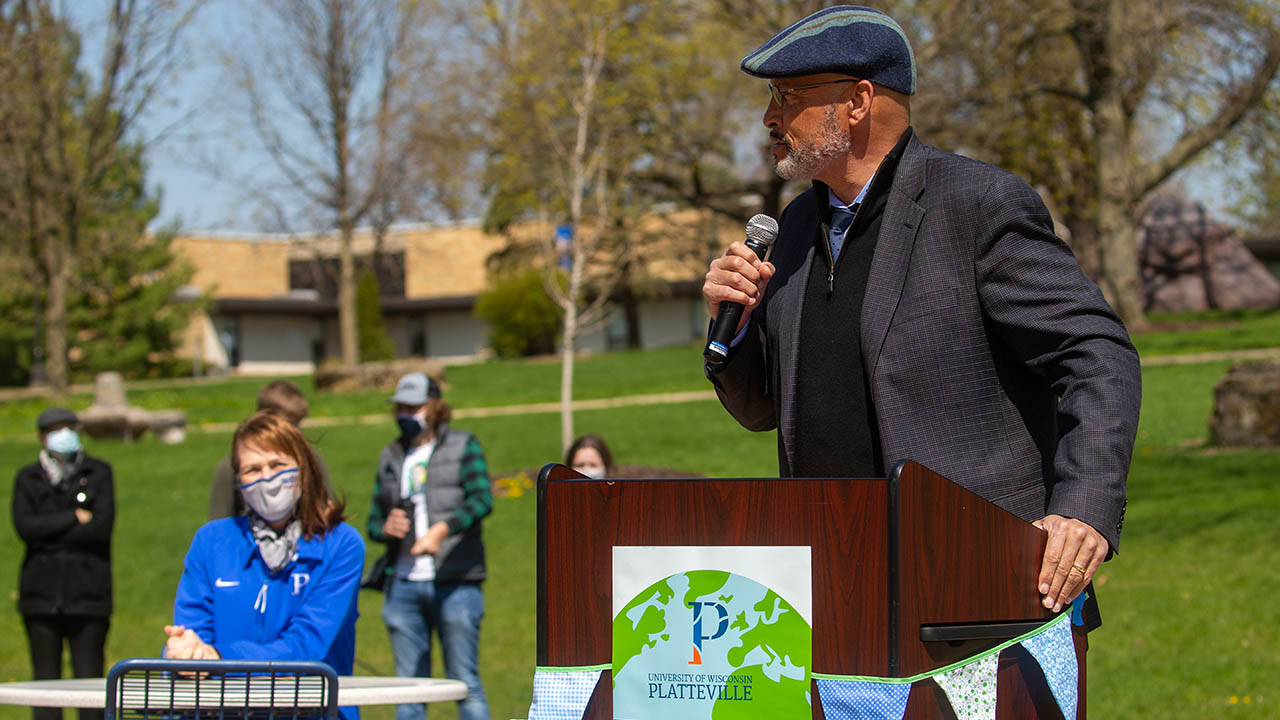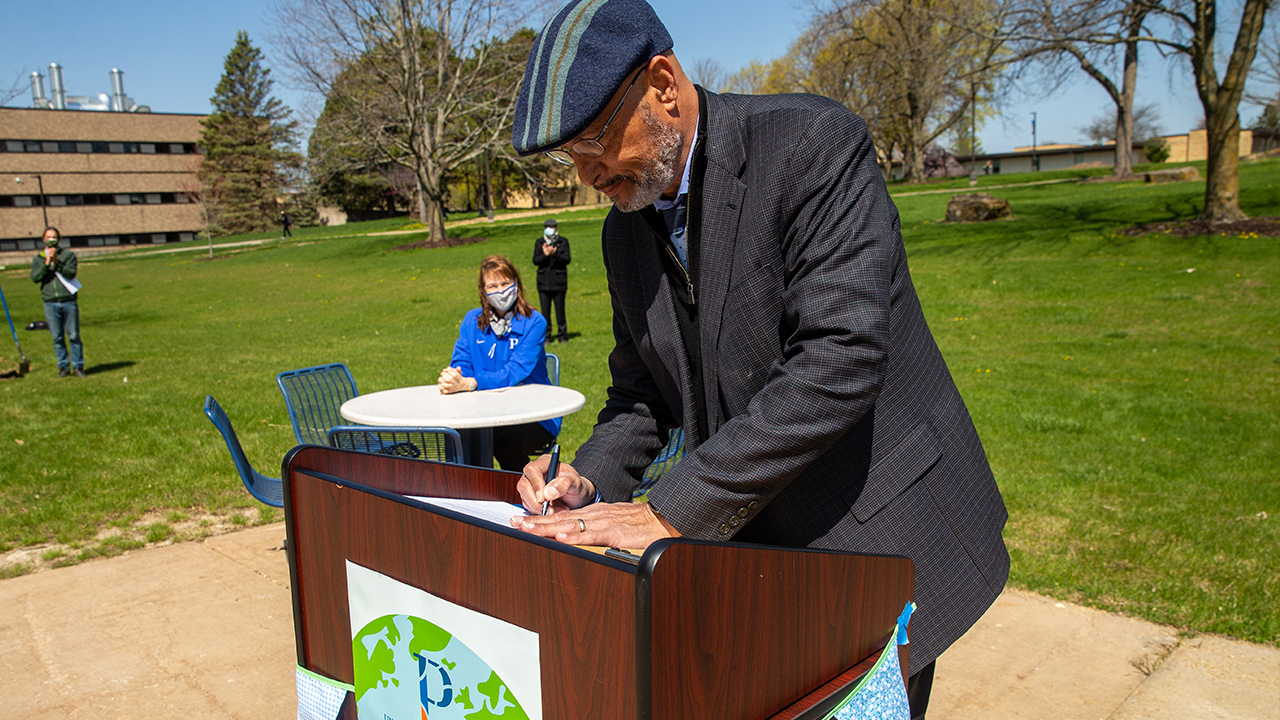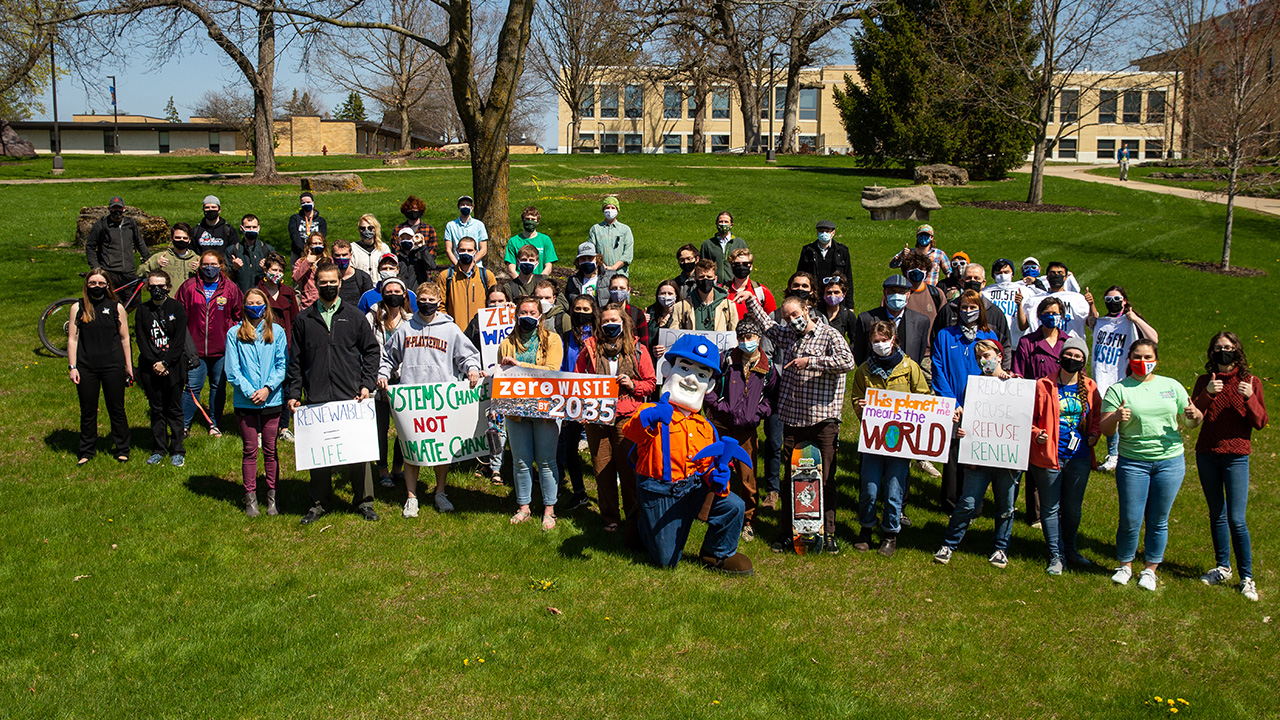


During the University of Wisconsin-Platteville’s recent Earth Day celebration, Chancellor Dennis J. Shields furthered the university’s commitment to being a leader in sustainability by pledging to become a zero waste campus by 2035. A zero waste campus is defined as diverting 90% of unwanted items from landfills, through recycling, composting or reusing.
"I am proud of the steps the university has taken over recent years to lessen our environmental impact, including our most recent commitment to the new solar array," Chancellor Shields said. "Becoming a zero waste campus is the next step in UW-Platteville’s efforts to incorporate sustainability into every aspect of the university. What is most encouraging about this initiative is witnessing the students’ enthusiasm and dedication to leading this change during a particularly challenging academic year."
The effort was initiated by a group of students that included Madi Belland, Megan Belongeay, Spencer Butterfield, Krystle Hader, Megan Kaufmann, Ryan Lodico, Lucas Turpin and Rowan Wirth. Mentored by Joshua Chamberland, UW-Platteville waste minimization coordinator; Amy Seeboth-Wilson, UW-Platteville sustainability coordinator; and Dr. Evan Larson, professor of geography, the students researched and prepared a proposal for the zero waste plan and presented it to Chancellor Shields in March. Using petitions, coalition letters and the Student Senate annual referendum vote, the group secured overwhelming support for the zero waste idea from the student body.
More than 400 students signed a petition seeking institutional commitment to the zero waste plan, and 17 university-sanctioned organizations signed a coalition letter seeking the same goal. In the recent Student Governance Referendum, 78.7% of voting students responded in favor of achieving zero waste by 2035.
“Now the hard work begins, but when there’s a will, there’s certainly a way,” said Chamberland. “With the abundance of talented students, faculty and staff on this campus, I’m confident we’ll develop the solutions needed to meet this challenge.”
UW-Platteville has already achieved a 35% reduction of landfill waste in the past seven years, through composting and selling unneeded items through Pioneer Restore. The next steps will include working closely with individual departments across campus to identify opportunities to further reduce landfill waste, with a particular focus on reducing single-use plastics and packaging with purchases, as well as enhancing digital learning tools. Aligning with these efforts, UW-Platteville is set to host its inaugural Spring Swap on May 22, in partnership with the City of Platteville. In an effort to keep items off of the curb as students move out, the event will offer an opportunity for the community to exchange gently used items.
For more information about sustainability initiatives at UW-Platteville, visit www.uwplatt.edu/department/sustainability